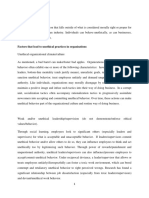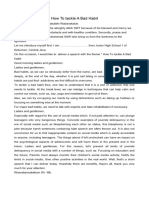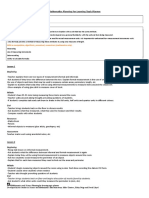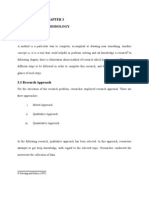0% found this document useful (0 votes)
28 views5 pagesConsumer Behavior Divya
This research examines the dual nature of consumer behavior transformations driven by technological innovations, weighing the benefits of enhanced experiences against concerns of privacy invasion. It analyzes consumer perceptions, ethical implications, and the role of regulatory frameworks in shaping trust and market practices. The study emphasizes the need for transparency and ethical strategies to balance innovation with consumer rights.
Uploaded by
shaan86paradkarCopyright
© © All Rights Reserved
We take content rights seriously. If you suspect this is your content, claim it here.
Available Formats
Download as DOCX, PDF, TXT or read online on Scribd
0% found this document useful (0 votes)
28 views5 pagesConsumer Behavior Divya
This research examines the dual nature of consumer behavior transformations driven by technological innovations, weighing the benefits of enhanced experiences against concerns of privacy invasion. It analyzes consumer perceptions, ethical implications, and the role of regulatory frameworks in shaping trust and market practices. The study emphasizes the need for transparency and ethical strategies to balance innovation with consumer rights.
Uploaded by
shaan86paradkarCopyright
© © All Rights Reserved
We take content rights seriously. If you suspect this is your content, claim it here.
Available Formats
Download as DOCX, PDF, TXT or read online on Scribd
/ 5























































































